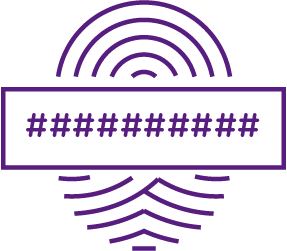![]()
Duration
Full Time – 30 Weeks
Part Time Options Available
* Subject to revised program structure changes
![]()
Dates
Not currently accepting applications
Please note that this program is not currently being offered. If you need to complete subject prerequisites, receive an ATAR, or both, please take a look at our Tertiary Preparation Program.
Didn’t get the score you need for university? Are you returning to study after years in the workforce?
If you are looking to enter university or increase your Queensland Tertiary Admission Centre (QTAC) ranking, then UQ College’s online Certificate IV in Adult Tertiary Preparation (CATP) is for you.
Completion of this program will enable you to apply through QTAC for an approved ATAR, whether you are a recent school leaver or a mature age student who has been absent from a formal study environment for some time. UQ College’s online Certificate IV in Adult Tertiary Preparation (CATP) is recognised as a Year 12 alternative, bridging knowledge gaps to meet university requirements. It is your academic pathway to university.
Flexible Online Study
Delivered online over three evenings a week working with highly qualified teachers to guide you, you can complete the CATP in the comfort of your own home. All you need is reliable internet access and a computer with a webcam and microphone.
NOTE: Students enrolled in the Biology or Chemistry units will be required to attend face-to-face laboratory sessions at our St Lucia campus and one field trip to Nudgee Beach in Brisbane (for Biology only). For completion of the Biology or Chemistry units, attendance at these activities is compulsory and non-negotiable.

Entry Requirements
For your pathway to university, all you need is:
A Unique Student Identifier Number (USI)
To be an Australian or New Zealand citizen, or be a holder of a Permanent Visa including a Permanent Humanitarian Visa
To be at least 18 years of age, or must be turning 18 within the enrolment period
Award
On successful attainment of the training and assessment requirements for the three Core and six Elective units, you will receive your Record of Results and 11240NAT Certificate IV in Adult Tertiary Preparation qualification issued by UQ College.
Statement of Attainment
Students who successfully meet the training and assessment requirements of a specialisation unit will receive a Statement of Attainment issued by UQ College. Successful completion of a specialisation unit will meet the prerequisite requirement for The University of Queensland or other universities.

Program Structure
To obtain the full qualification, you will need to meet the training and assessment requirements for the three Core units, and six Elective units of your choosing.
If you are not interested in the full qualification but need a pre-requisite (specialisation) to satisfy entry requirements for your desired degree program, UQ College has that option for you. You can choose to study either an English, General Maths, Pure Maths, Chemistry or Biology specialisation (refer to Electives and Specialisations below).
English (3 units)
| Unit code | Unit name | Course Description |
|---|---|---|
| NAT11240024 | Plan and prepare for study | This unit describes the performance outcomes, skills and knowledge required to plan and prepare for study in an adult learning environment. It requires the ability to develop career and study goals and skills to successfully plan and organise study commitments. Using software to contribute to the learning community and prepare and present information and data for study is also required. |
| NAT11240001 | Apply academic learning skills | This unit describes the performance outcomes, skills and knowledge required to develop academic learning skills for tertiary study. It requires the ability to plan, research, prepare and publish academic writing tasks that incorporate and acknowledge the work of others. Written communication using academic format, style and structure is required. |
| NAT11240002 | Apply advanced academic learning skills to develop an academic argument | This unit describes the performance outcomes, skills and knowledge required to apply advanced academic learning skills to develop structured academic arguments. It requires the ability to evaluate source material, develop thesis statements and evidence-based persuasive arguments. The presentation of written and spoken arguments using academic conventions, techniques, format, style, and structure is required. NB: NAT11240002 is a pre-requisite for this unit. |
English (3 units)
| Unit code | Unit name | Course Description |
|---|---|---|
| NAT11240024 | Plan and prepare for study | This unit describes the performance outcomes, skills and knowledge required to plan and prepare for study in an adult learning environment. It requires the ability to develop career and study goals and skills to successfully plan and organise study commitments. Using software to contribute to the learning community and prepare and present information and data for study is also required. |
| NAT11240001 | Apply academic learning skills | This unit describes the performance outcomes, skills and knowledge required to develop academic learning skills for tertiary study. It requires the ability to plan, research, prepare and publish academic writing tasks that incorporate and acknowledge the work of others. Written communication using academic format, style and structure is required. |
| NAT11240002 | Apply advanced academic learning skills to develop an academic argument | This unit describes the performance outcomes, skills and knowledge required to apply advanced academic learning skills to develop structured academic arguments. It requires the ability to evaluate source material, develop thesis statements and evidence-based persuasive arguments. The presentation of written and spoken arguments using academic conventions, techniques, format, style, and structure is required. NB: NAT11240002 is a pre-requisite for this unit. |
General Mathematics (2 units)
| Unit code | Unit name | Course Description |
|---|---|---|
| NAT11240012 | Apply general mathematics in real world contexts | This unit describes the performance outcomes, skills and knowledge required to solve general mathematical problems embedded in real world contexts. It requires the ability to apply mathematical concepts and techniques to perform calculations involving numbers, measurement, and finance. Communication using mathematical, statistical, and everyday language and conventions is required.. |
| NAT11240013 | Apply statistical and algebraic theory in real world contexts | This unit describes the outcomes required to apply the knowledge and skills of statistical and algebraic theory to solve general mathematical problems in real world contexts. It requires the ability to apply the problem-solving process to solve mathematical problems relating to algebra, probability, and statistics. Communication using mathematical, statistical, and everyday language and conventions is required. NB: NAT11240012 is a pre-requisite for this unit. |
Pure Mathematics (3 units)
| Unit code | Unit name | Course Description |
|---|---|---|
| NAT11240021 | Solve pure mathematics problems involving trigonometry and algebra | This unit describes the performance outcomes, skills and knowledge required to apply problem solving skills to predictable and routine pure mathematics problems involving trigonometry and algebra. It requires the ability to perform mathematical calculations and to solve problems which include introductory mathematical concepts, linear functions and quadratics, and trigonometry and measurement. Communication using concise and systematic mathematical language and conventions is required. |
| NAT11240022 | Solve pure mathematics problems involving statistics and functions | This unit describes the performance outcomes, skills and knowledge required to apply problem solving skills to predictable and routine pure mathematics problems involving statistics and functions. It requires the ability to comprehend and apply mathematical concepts and techniques drawn from relations and functions, probability and statistics, index laws, and exponential and logarithmic functions. The communication of arguments and strategies requires the concise and systematic application of statistical and mathematical language and conventions. NB: NAT11240021 is a pre-requisite for this unit. |
| NAT11240023 | Solve pure mathematics problems involving calculus | This unit describes the outcomes skills and knowledge required to apply problem solving skills to predictable and routine pure mathematics problems using calculus. It requires the ability to apply mathematical methods to develop solutions and perform mathematical calculations applying both differentiation and anti-differentiation including integration. Communication using concise and systematic mathematical language and conventions is required. NB: NAT11240021 is a pre-requisite for this unit. |
Chemistry (3 units)
| Unit code | Unit name | Course Description |
|---|---|---|
| NAT11240007 | Demonstrate the practical and theoretical application of introductory chemistry | This unit describes the performance outcomes, skills and knowledge required to apply introductory chemistry both in theory and in practice. It requires the ability to solve problems, refine experiments and conduct scientific investigations relating to chemistry fundamentals, physical and chemical changes, chemical reactions and stoichiometry. Explaining chemistry concepts requires proficient use of scientific and everyday language and conventions. |
| NAT11240008 | Apply principles of chemical reactions and systems in theory and practice | This unit describes the performance outcomes, skills and knowledge required to understand and apply principles of chemical reactions and chemical systems in theory and practice. It requires the ability to solve problems, refine experiments and conduct scientific investigations relating to thermochemistry, equilibrium, acids and bases. Presenting ideas, information, problems and solutions effectively requires communication using scientific and everyday language and conventions is required. NB: NAT11240007 is a pre-requisite for this unit. |
| NAT11240009 | Demonstrate the application of theory relating to electrochemistry and organic chemistry | This unit describes the outcomes required to apply theory relating to redox reactions, electrochemistry, and organic chemistry. It requires the ability to conduct experiments, collect and manipulate data and apply chemistry information, theory, and data to solve problems. The communication of chemistry concepts using scientific reasoning and proficient use of scientific and everyday language and conventions is required. NB: NAT11240007 is a pre-requisite for this unit. |
Biology (2 units)
| Unit code | Unit name | Course Description |
|---|---|---|
| NAT11240005 | Apply science inquiry to solve biology problems relating to cells and multicellular organisms | This unit describes the performance outcomes, skills and knowledge required to solve biology problems relating to cells and multicellular organisms using the science inquiry process. It requires the ability to understand facts and theory and conduct practical investigations on biology fundamentals that include the nature of life, cells and plant and animal physiology. Organising and representing ideas and information using scientific language and conventions is required. |
| NAT11240006 | Apply theory of ecosystems and genetics in biology | This unit describes the performance outcomes, skills and knowledge required to apply biology theory relating to ecosystems and genetics. It requires the ability to understand facts and theory on biodiversity, classifications, genetics, and evolution, conduct practical investigations, and solve problems using data. Organising and representing ideas and information using scientific language and conventions is required. |
Psychology (2 units)
| Unit code | Unit name | Course Description |
|---|---|---|
| NAT11240025 | Investigate psychology using science inquiry methodology | This unit describes the performance outcomes, skills and knowledge required to investigate psychology using science inquiry methodology. It requires the ability to understand psychology fundamentals to solve problems and research psychology issues. Organising and representing ideas and information using scientific language and conventions in a psychology context is required. |
| NAT11240026 | Investigate individual thinking and social psychology | This unit describes the performance outcomes, skills and knowledge required to investigate individual thinking and social psychology using research and science inquiry methods. It requires the ability to understand and apply the concepts of intelligence, memory, cognitive development as well as social cognition and influence. Organising and representing ideas and information using scientific language and conventions is required. |
Business (3 units)*
| Unit code | Unit name | Course Description |
|---|---|---|
| BSBMKG435 | Analyse consumer behaviour | This unit describes the skills and knowledge required to analyse consumer behaviour for markets and specific needs. |
| BSBESB401 | Research and develop business plans | This unit describes the skills and knowledge required to research and develop business plans for achieving business goals and objectives. |
| BSBLDR411 | Demonstrate leadership in the workplace | This unit describes the skills and knowledge required to lead teams and individuals by modelling high standards of conduct to reflect the organisation’s standards and values. |
* Business Streams currently not available; Units under development for release in 2025.
| Stream | Specialisation Units | Term 1 | Term 2 | Term 3 |
|---|---|---|---|---|
Generalist | English (Core: 3 units) General Maths (2 units) Biology (2 units) Psychology (2 units) | Plan and Prepare for Study | English 1 General Maths 2 Biology 2 | English 2 Psychology 1 Psychology 2 |
Science | English (Core: 3 units) Chemistry (3 units) Pure Maths (3 units) | Plan and Prepare for Study Chemistry 1 Pure Maths 1 | English 1 Chemistry 2 Pure Maths 2 | English 2 Chemistry 3 Pure Maths 3 |
Business Option 1 | English (Core: 3 units) Business (3 units) Pure Maths (3 units) | Plan and Prepare for Study Business 1 Pure Maths 1 | English 1 Business 2 Pure Maths 2 | English 2 Business 3 Pure Maths 3 |
Business Option 2 | English (Core: 3 units) | Plan and Prepare for Study Business 1 General Maths 1 | English 1 Business 2 General Maths 2 | English 2 Business 3 Psychology 1 |
* Business Streams currently not available; Units under development for release in 2025.
Timetable
- Classes take place on Monday to Thursday evenings, from 7-9pm (AEST).
- Consultation sessions typically take place during evening timeslots or per agreement with the unit trainer.
- Detailed timetable information will be available during Program Orientation prior to commencement.
Assessment

Your teachers will monitor your academic progress throughout the program and provide you with regular feedback and guidance.
Students are marked as either ‘satisfactory’ or ‘not yet satisfactory’ for each assessment item. If a student receives a satisfactory result for each assessment item in the unit, they are then awarded a ‘competent’ result for the unit. Students who are completing the full 11240NAT Qualification will also be awarded a numerical grade for each unit.
Assessment items may include exams, individual and group assignments, research projects, laboratory practicals, and seminar presentations. Your final result in a course will be based on all assessment items. All courses are graded on the UQ 7–point scale:
| SCALE | GRADE | RANGE |
|---|---|---|
| 7 | High distinction | 85 – 100% |
| 6 | Distinction | 75 – 84% |
| 5 | Credit | 65 – 74% |
| 4 | Pass | 50 – 64% |
| 3 | Marginal Fail | 47 – 49% |
| 2 | Fail | 25 – 46% |
| 1 | Low fail | 0 – 24% |
Application checklist
Documents required to enrol:

1. Photographic identification
One form of photographic identification is required as part of your enrolment.
- For Australian and New Zealand citizens: A copy of your passport, driver’s licence, or proof of age card.
- Holder of a Permanent Visa including a Permanent Humanitarian Visa:
- A copy of your Passport or Immigration Card, and
- A copy of your Visa or letter from the Department of Home Affairs.

2. Unique Student Identifier (USI)
The Unique Student Identifier (USI) is a reference number allocated to each person undertaking recognised training courses. It is now a requirement to have a USI number to receive your Qualification or Statement of Attainment. If you don’t already hold a USI, you will need to go to www.usi.gov.au to create one.

3. If applying for Credit Transfer:
Complete Credit Transfer Application Form (VET).
Submit your application prior to start of study.
Along with this form, you should also submit any relevant qualification, testamurs, record of results, statements of attainment, graduation statements, or a USI transcript. These documents should either be copies certified by a Justice of the Peace, or originals for sighting by an appropriate UQ College staff member.
You must submit your application prior to your start of study.
Read more about Credit Transfer
Subsidised training
Subsidised training is only for students wishing to enrol and study the full qualification.
The CATP provides eligible individuals with access to a subsidised training place, with a pre-approved registered training organisation (UQ College). The principal aim of subsidised training is to help student gain the higher-level skills required to secure employment or career advancement in a priority industry or transition to university to continue their studies.

Recognition of Prior Learning
Recognition of prior learning (RPL) is all about the skills and knowledge you’ve collected through work and life experiences and then transferring them to current training course requirements. RPL must take place at the start of the program after enrolling with UQ College.
VET Fees, Charges and Refunds
UQ College will inform prospective learners about their rights as a consumer, in accordance with state/territory laws. UQ College will notify learners when any change occurs that may affect the services the College provides.
Process required for refund
All refund requests must be received in writing by emailing info@uqcollege.uq.edu.au.
All refund requests will be made at the sole discretion of UQ College and processed accordingly to the Fees, Charges and Refund Procedure.
If a student is not satisfied with the outcome of the refund process, the student may appeal the decision by following the UQ College Complaints and Appeals Policy and Procedure.
Get in touch
Current students
studentadmin@uqcollege.uq.edu.au
Future students, agents and partners
enquiries@uqcollege.uq.edu.au
UQ College
The University of Queensland
The Sir Llew Edwards Building
University Drive
St Lucia QLD 4072 Australia
